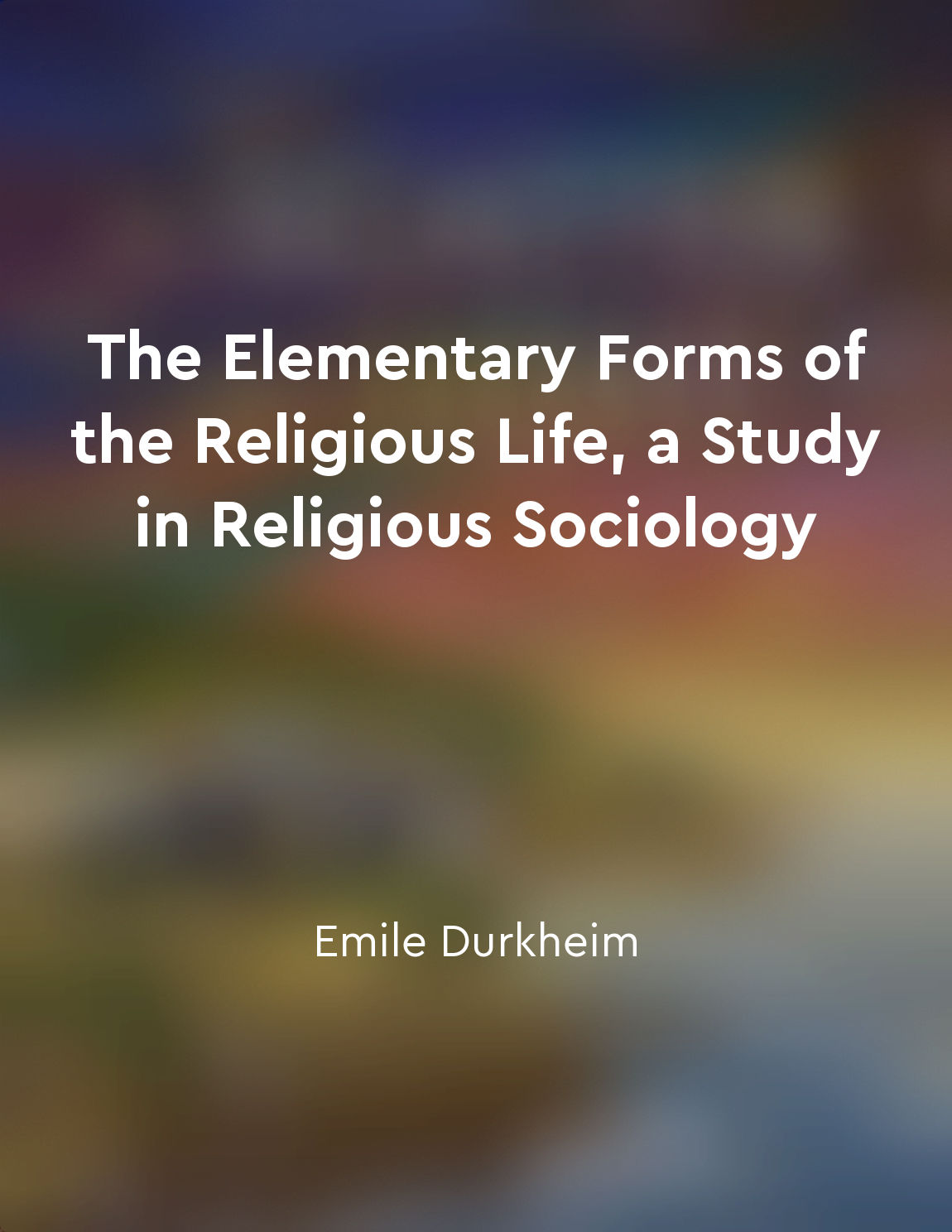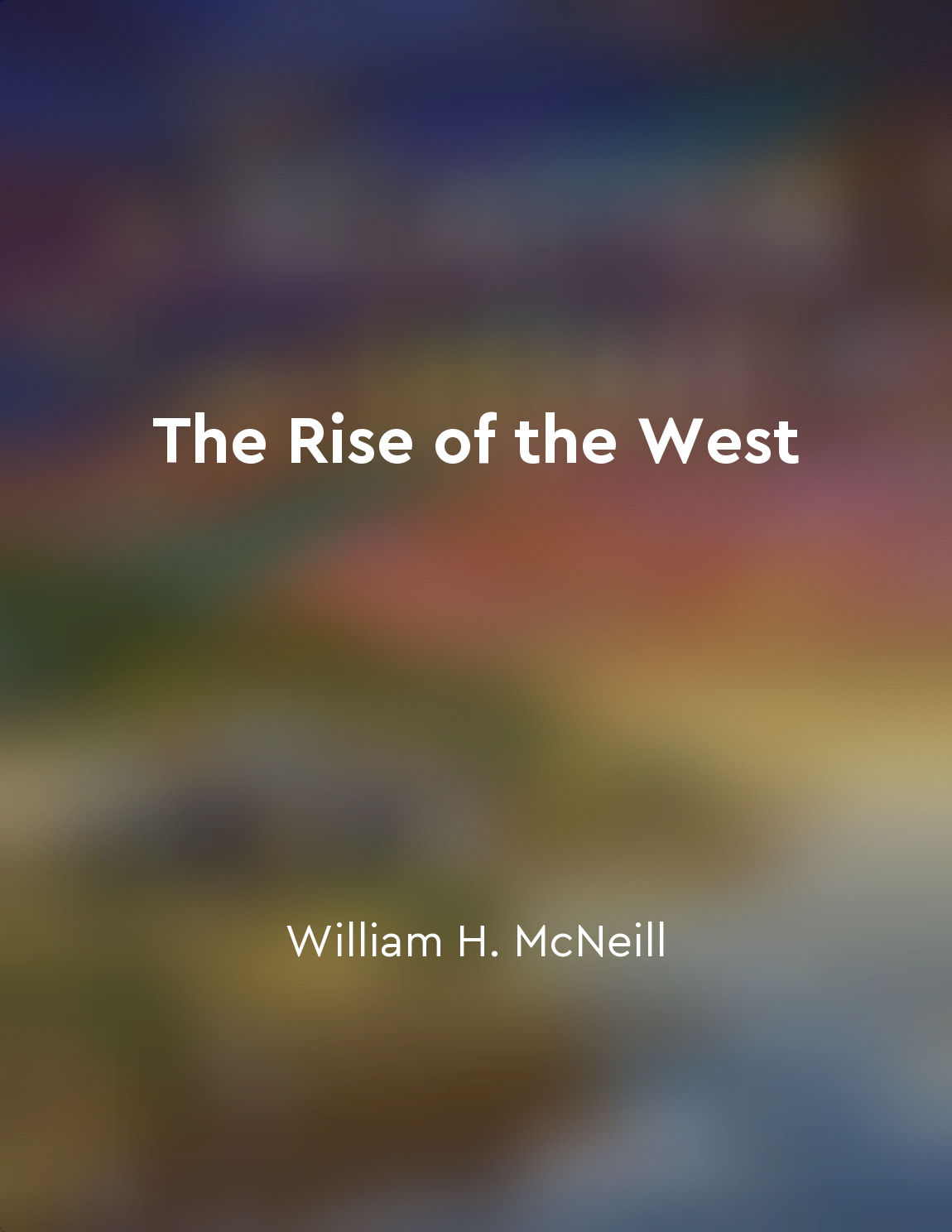Religion is a fundamental aspect of human society from "summary" of The Elementary Forms of the Religious Life, a Study in Religious Sociology by Emile Durkheim
Religion, as a fundamental aspect of human society, plays a crucial role in shaping the beliefs, values, and behaviors of individuals within a community. It serves as a unifying force that brings people together, creating a sense of solidarity and connection among its members. Through shared rituals, symbols, and myths, religion reinforces social cohesion and reinforces the collective consciousness of a group. Durkheim argues that religion is not simply a set of beliefs or practices, but a system of symbols that represents the collective values and ideals of a society. These symbols serve to reinforce social norms and moral codes, providing a framework for individuals to understand their place in the world and their relationships with others. By participating in religious rituals and ceremonies, individuals reaffirm their commitment to the group and strengthen their bonds with fellow believers. Furthermore, religion serves as a source of meaning and purpose in people's lives, offering explanations for the mysteries of existence and providing a sense of order and stability in an otherwise chaotic world. Through religious beliefs and practices, individuals can make sense of their experiences, find comfort in times of distress, and cultivate a sense of hope for the future. Durkheim also highlights the role of religion in promoting social order and stability by regulating behavior and resolving conflicts within a community. By establishing moral codes and ethical guidelines, religion helps to maintain social harmony and prevent deviant behavior. In this way, religion acts as a moral compass that guides individuals towards virtuous conduct and fosters a sense of responsibility towards others.- Religion is a foundational element of human society that shapes our values, beliefs, and behaviors in profound ways. It provides a sense of belonging, meaning, and purpose to individuals, while also promoting social cohesion, moral order, and collective solidarity within a community. By understanding the significance of religion in shaping human societies, we can gain insight into the complex interplay between culture, beliefs, and social relations.
Similar Posts
Current affairs must be linked to historical events for a comprehensive understanding
Understanding current affairs in isolation can only provide a superficial grasp of the events unfolding around us. To truly com...
The future of human evolution and its challenges
As we contemplate the future of human evolution, we are faced with numerous challenges that will shape the course of our specie...

Religion is a source of meaning and purpose
The role of religion in society extends far beyond mere belief in supernatural powers. Religion acts as a unifying force, bindi...

The West's dominance is challenged by other civilizations
The ascendancy of the West, which has characterized the past five centuries of world history, is now being challenged by other ...

Religious rites affirm communal bonds
According to Durkheim, religious rites play a crucial role in affirming communal bonds within a society. These rituals serve as...

